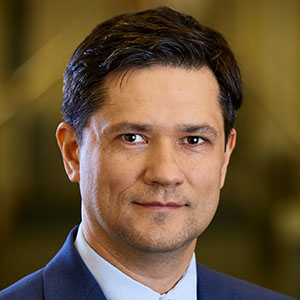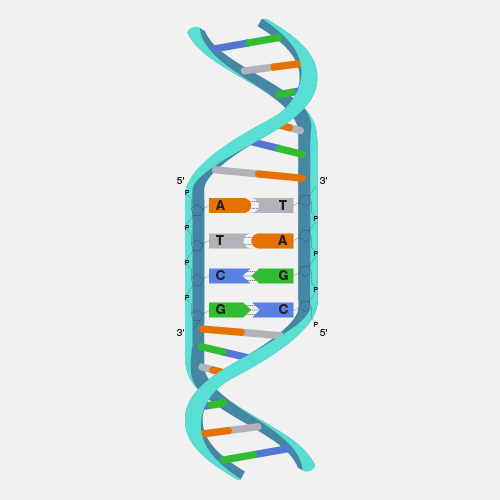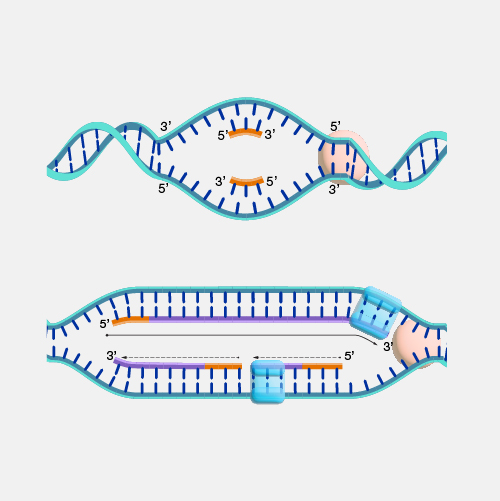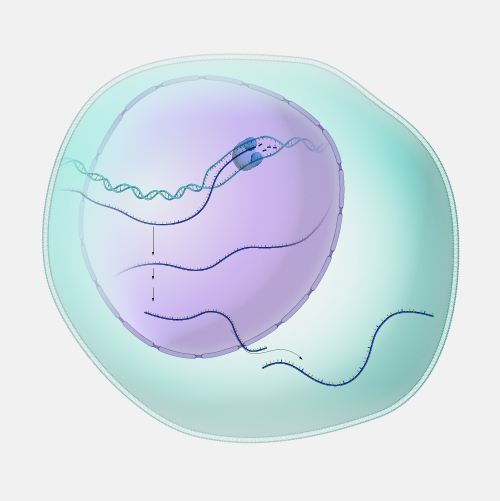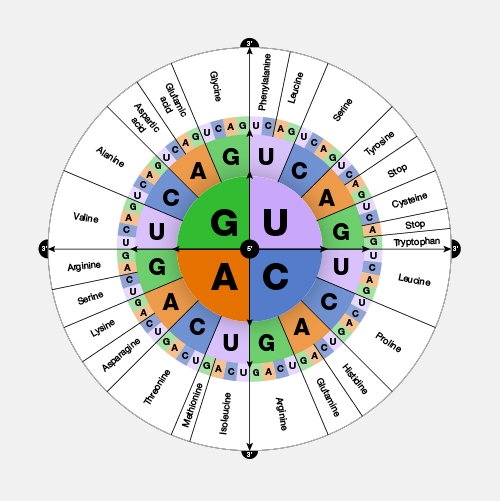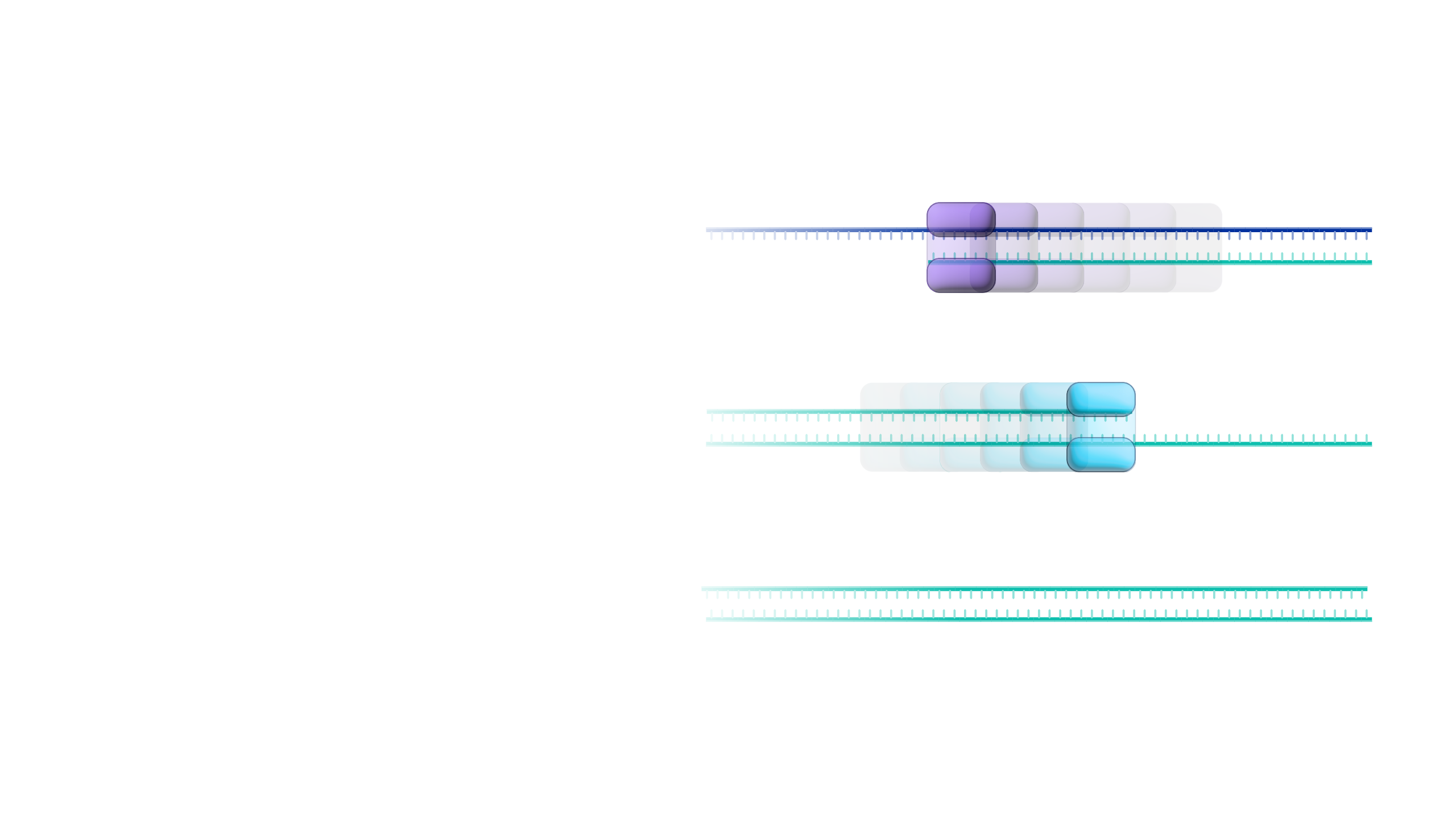
cDNA (copy DNA)
Definition
cDNA (short for copy DNA; also called complementary DNA) is synthetic DNA that has been transcribed from a specific mRNA through a reaction using the enzyme reverse transcriptase. While DNA is composed of both coding and non-coding sequences, cDNA contains only coding sequences. Scientists often synthesize and use cDNA as a tool in gene cloning and other research experiments.
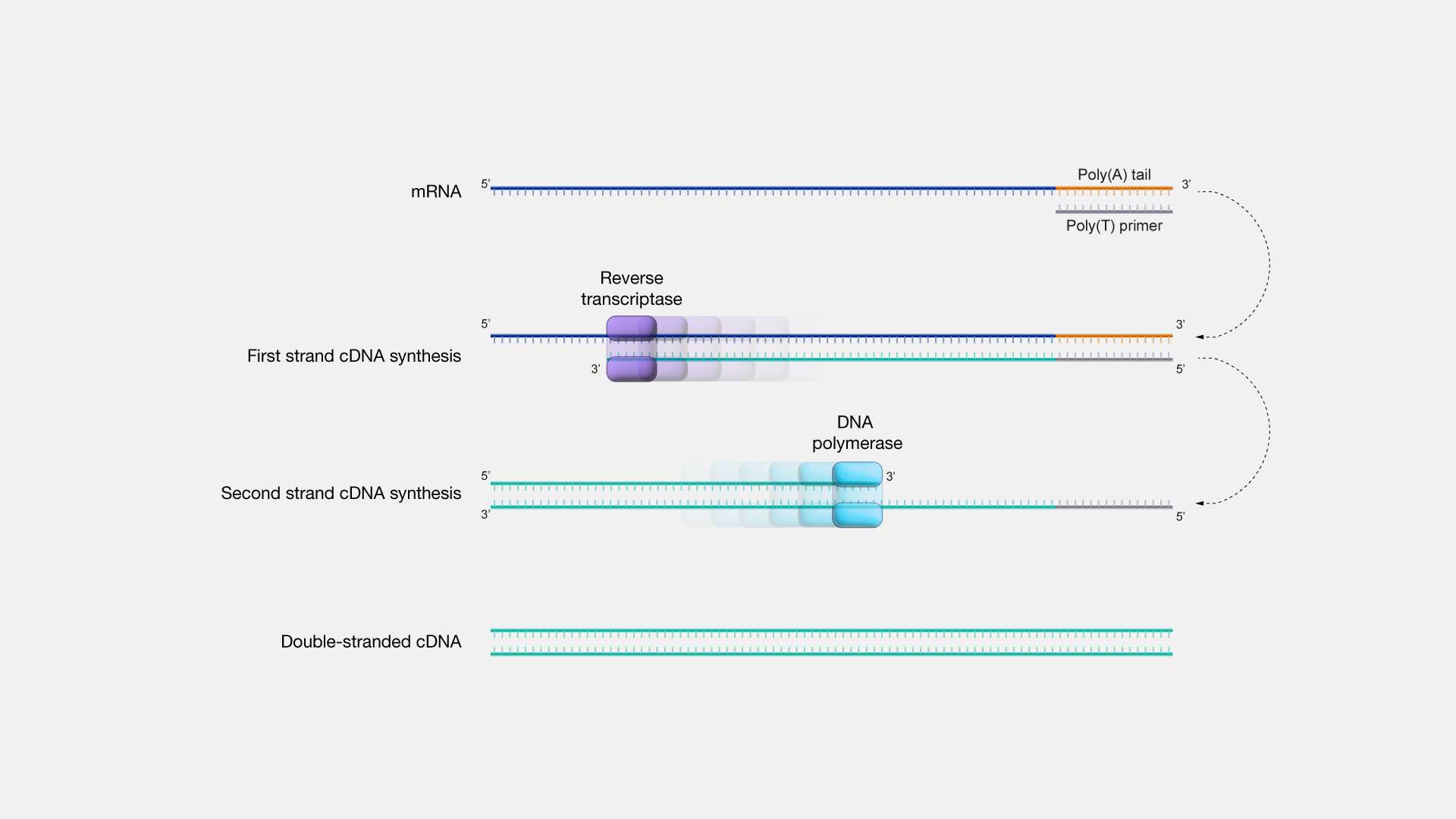
Narration
cDNA, copy DNA. If you get to spend a week in a genomics lab, it is very likely that you will hear about cDNA one way or another. That's how important this word is and for a good reason. Imagine that for one of your experiments, you need to make a protein and a lot of it. Let's say you want to create a more stable version of insulin, a diabetes drug. One way to do it is to get cells that make this protein, let's say pancreatic cells. These cells will contain a gene with instructions on how to make insulin. These cells can also transcribe this gene to temporarily store this information in the form of RNA. Using a special enzyme called traverse transcriptase, you can convert RNA back to DNA, but the resulting DNA will look a little different from the original gene. For example, it will be much shorter than the gene from where it came from. This is why scientists use another word, cDNA, copy or complementary DNA, to tell these versions apart. What you can do with the cDNA of insulin is very interesting. You can clean it up. You can make changes to the sequence. And using special molecular tools, special enzymes, you can insert it back into genome of another organism, for example, yeast. Yeast is very good at making lots of proteins. And if you insert cDNA of insulin into its genome in the right place and configuration, it can start making insulin for you. This is one way scientists can make and test new versions of insulin with properties that can be helpful in treating diabetes.
